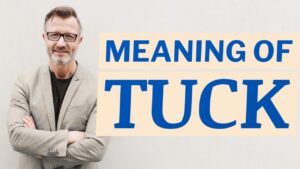
Introduction
Welcome! If you’ve been asking, “What is the Doge HHS migrant housing contract?”—you’re in the right place. In this definitive guide, we break down what the contract entails, who’s involved, why it matters, and how recent government efficiency efforts have affected it. Using plain English and clear structure, we’ll keep everything smooth, informative, and engaging. Let’s dive in!
What Is the “Doge HHS Migrant Housing Contract”?
Origins of the Name
The name refers to a contract between the U.S. Department of Health and Human Services (HHS) and an entity dubbed “DOGE”—not the cryptocurrency meme, but a government-affiliated office: the Department of Government Efficiency (DOGE) .
H3: Purpose and Basic Terms
This contract was intended to provide safe, temporary housing for unaccompanied migrant children, offering services like shelter, food, health care, and legal support under HHS’s oversight .
Why Did It Become So Controversial?
High Costs and Low Usage
The centerpiece of the controversy: HHS paid $18 million per month to maintain an empty migrant facility in Pecos, Texas—even though it hadn’t housed any children since March 2024 .
DOGE Steps In
The Department of Government Efficiency (DOGE), led by Elon Musk, flagged the waste, prompting HHS to terminate the contract—reportedly saving tens of millions annually .
Skepticism Over Savings
Investigative reports suggest DOGE may have exaggerated its financial savings; real verifiable savings were around $1.4 billion, not the billions claimed .
What’s Behind the Numbers?
Context of the Pecos Contract
Family Endeavors, a Texas-based nonprofit, was managing the Pecos facility. Despite its preparedness, the facility remained unoccupied while still earning millions. The money paid ballooned the nonprofit’s finances from $8.3 million in 2020 to $520 million in 2023 .
Federal Efficiency Push
DOGE is an arm of federal reform, established in early 2025 via executive orders to slash waste and reform contracting across agencies—including achieving centralized oversight over procurement and data access .
How Does the User Actually Benefit?
Transparency
If you’re researching the Doge HHS migrant housing contract, you’ll notice headlines, reports, and official records (like USAspending.gov) give more insight than ever—enhancing transparency in government spending .
Accountability
By spotlighting waste, the DOGE reform effort pushed agencies to be more accountable—and sparked congressional and legal reviews .
The Bigger Picture—Beyond Pecos
Migrant Housing at Large
HHS commonly partners with nonprofits (like BCFS, Southwest Key, Endeavors) to house migrants, not cryptocurrencies or meme-based entities .
Reforming Procurement Practices
The DOGE initiative reshaped how government contracts are awarded—pushing for competitive bidding, real usage, and rigorous oversight .
Balancing Efficiency with Humanity
While cost savings are important, the goal remains humane and safe care. Future contracts may emphasize transparency, community integration, and long-term support, not just short-term fixes .
FAQs
Is “Doge” related to Dogecoin?
No. In this context, DOGE stands for the Department of Government Efficiency, a federal efficiency office, not the meme coin .
Who was receiving the contract payments?
Family Endeavors, a nonprofit, received ~$18 million per month for the Pecos facility—even when it was unused .
How long was the facility unused?
Since March 2024, it remained empty, though payments continued for months afterward .
How much in taxpayer savings were claimed?
DOGE claimed massive savings, but Politico found actual verifiable savings to be around $1.4 billion—not the tens of billions initially touted .
Can the public verify other contracts?
Yes. You can search USAspending.gov or SAM.gov for official contract listings; none show “Doge” related to crypto—only traditional nonprofits .
Conclusion
The Doge HHS migrant housing contract illustrates both the challenges and opportunities in U.S. migrant care. While the costly, unused Pecos facility sparked outrage—and reforms—it also underscores how oversight, transparency, and data access (via DOGE) can push federal systems to improve.
For readers, awareness and verification are key. Always turn to reputable sources to understand how taxpayer dollars are spent—and to ensure humane, effective support for vulnerable populations.





